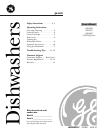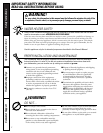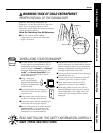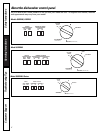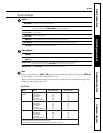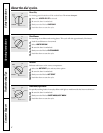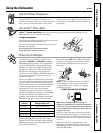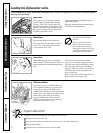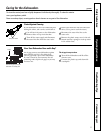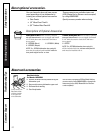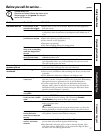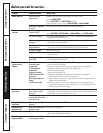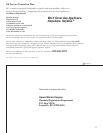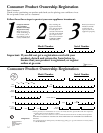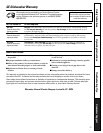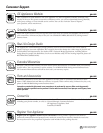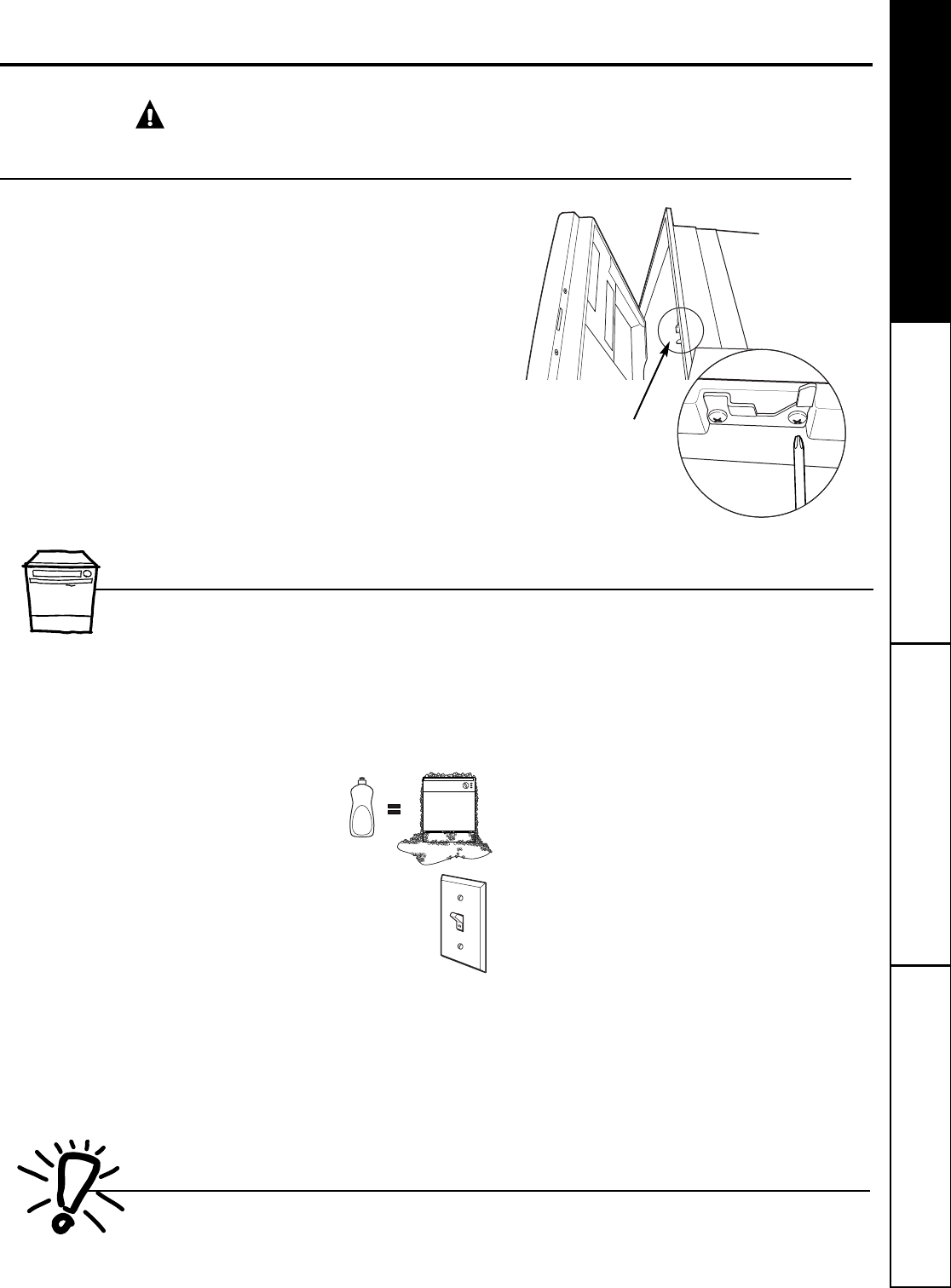
SAVE THESE INSTRUCTIONS
Consumer Support
Troubleshooting TipsOperating Instructions
Safety Instructions
3
PROPER DISPOSAL OF THE DISHWASHER
Junked or abandoned dishwashers are
dangerous…even if they will sit for “just a few
days.” If you are getting rid of your old
dishwasher, please follow the instructions below
to help prevent accidents.
Before You Throw Away Your Old Dishwasher:
■ Take off the door of the washing
compartment or remove the door latch
keeper (as shown).
WARNING! RISK OF CHILD ENTRAPMENT
READ AND FOLLOW THIS SAFETY INFORMATION CAREFULLY.
Door latch keeper
ge.com
WHEN USING YOUR DISHWASHER
■ Use only powder, tabs, liquid detergents
or rinse agents recommended for use in
a dishwasher and keep them out of the
reach of children. Cascade
®
and Electrasol
®
Automatic Dishwashing Detergents, and
Jet-Dry
®
and Cascade Crystal Clear
®
rinse
agents have been approved for use in
all GE dishwashers.
■ Using a detergent
that is not specifically
designed for dishwashers
will cause the dishwasher
to fill with suds.
■ If your dishwasher is connected to a
wall switch, insure that the switch is
on prior to use.
■ Locate sharp items so that they are
not likely to damage the door seal.
■ Load sharp knives with the handles up to
reduce the risk of cut-type injuries.
■ Do not wash plastic items unless marked
dishwasher safe or the equivalent. For
plastic items not so marked, check the
manufacturer’s recommendations.
■ Non-Dishware Items: Do not wash items
such as electronic air cleaner filters, furnace
filters and paint brushes in your dishwasher.
Damage to dishwasher and discoloration or
staining of dishwasher may result.
■ Do not touch the heating element during or
immediately after use.
■ Do not operate your dishwasher unless all
enclosure panels are properly in place.
■ Close supervision is necessary if this
appliance is used by or near children.
■ Load light, plastic items so they will not
become dislodged and drop to the bottom
of the dishwasher—they might come into
contact with the heating element and be
damaged.



